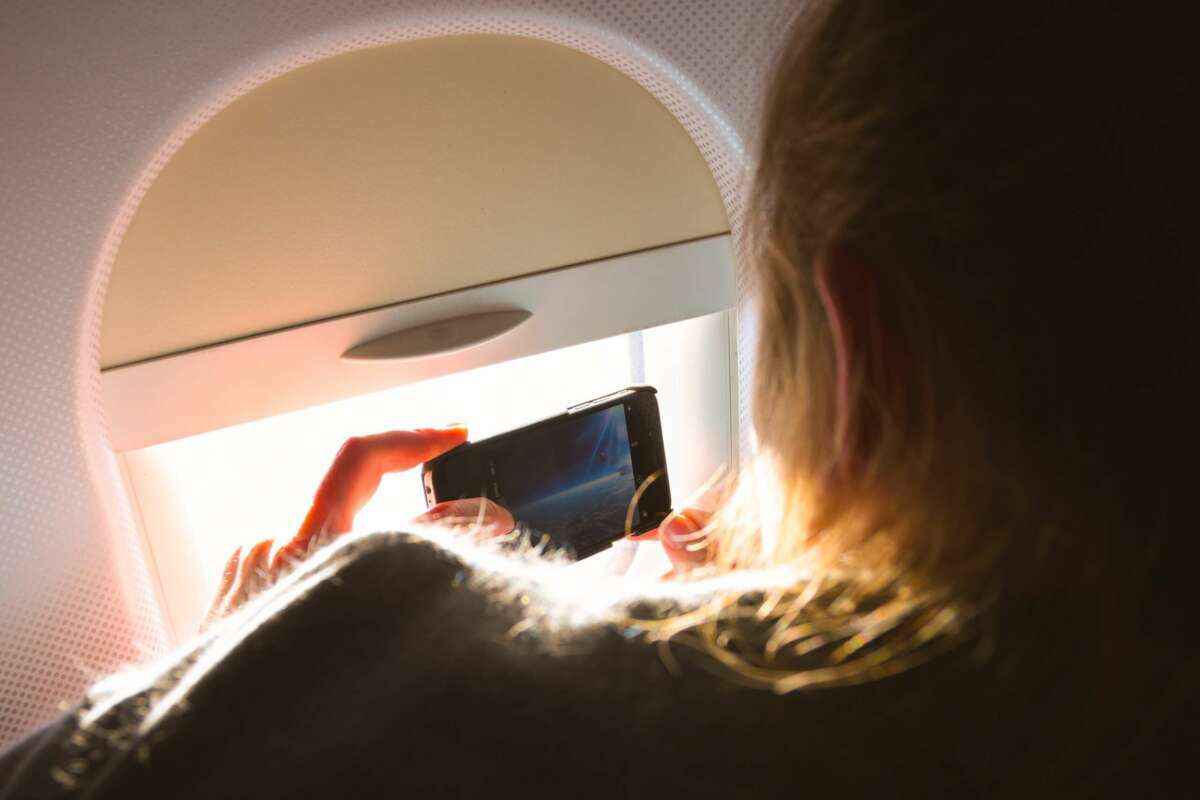The luxury hotel industry is undergoing a dramatic series of changes. The completion of Marriott’s acquisition of Starwood last month means that 30 brands, from very high to very low, are all under one roof. Can a luxury brand be run well when it has that many sisters and brothers? We’ll find out.
There are questions about whether Hyatt is of sufficient scale given its loss of Starwood to Marriott; how the online travel sites will ultimately affect occupancy and pricing across the industry, and how long the global slowdown in spending in key markets like Asia will last.
But the potentially most significant challenge of all for the world’s most expensive hotel groups? Home sharing.
Airbnb has changed the way people travel for leisure. PhoCusWright, a travel research firm, reports that last year, one in three leisure travelers used a private accommodation, rather than a hotel – that’s up from one in ten just five years ago.
So should luxury hotel companies fear Airbnb? Not yet. While Airbnb has clearly been a disruptor in the hospitality industry, its target audience is – for the moment – not the high-luxury leisure traveler. That could change, of course, and the company has smartly laid down some markers by holding a series of contests for over-the-top luxury prizes (like a weekend at Kronborg Castle in Denmark, the setting for “Hamlet”); offering properties like a 3-bedroom “super yacht” in Hong Kong and luxury apartments in Havana; and trumpeting Gwyneth Paltrow and Beyoncé as both guests and hosts. The Airbnb Picks section entitled “In the Lap of Luxury” catalogs 31 luxury listings, with rates as high as $3,100 per night. A handful more run up to $10,000 per night. It’s a tiny fraction of the site’s listings, which total 2 million, but it keeps the company in the game should it decide to pursue the segment more aggressively.
No, the real threat is coming from elsewhere: home sharing sites that are exclusively targeting the highest end of the luxury travel market, and promising a richer immersion in local culture and mores, and a great deal more privacy, than a luxury hotel has traditionally been able to provide.
The idea of luxury home rentals is not a new one. For decades, the rich have rented ocean-side villas, Tuscan farmhouses, Scottish castles, estates in the Hamptons, and other premier properties around the world (one of our friends flew 40 people to a rented vineyard in the south of France for a long weekend to celebrate a 40thbirthday).
This old school model still exists: your travel agent can book you into any number of amazing privately-owned properties at rates as high as you want to go. For example, a quick scan of private islands available for rent in their entirety revealed options in the Philippines, the Maldives, and Mozambique that can host 12-30 people, at prices ranging from $6,500 to $32,500 per night. Richard Branson’s Necker Island can be yours for $56,000 per night; five years ago, Branson’s Virgin Limited Edition collection of properties offered a two-week trip to three of his properties, with private jet transfers between them, at a rate of $250,000. For two people.
But if you want to kick it new school, here are some sites that allow you to search for a luxury home-share property and book it directly on your own:
–Luxury Retreats, one of the oldest of these sites, bills itself as the Airbnb of luxury villas. The site thoroughly vets potential hosts, and says that it accepts only 5% of the applicants. The site claims to have 500,000 travelers a year, and properties can top $10,000 per night at the high end. To date, the company has 3,300 villas listed, all inspected prior to listing and stocked with essential amenities like linens.
–Onefinestay, founded in 2009, and recently acquired by France’s Accor Hotel group (owners of the Fairmont brand), has properties in London, New York, Paris, Rome and LA. There are approximately 2,600 listings, and the company provides housecleaning services both prior and post-visit, linens, towels and toiletries. They reject most host applicants, and most of the properties rent for over $1,000 per night. A handful of properties have a market value of $35 million or more, and a select group are marketed as ideal places to stay on a business trip.
–homeaway.com and VRBO are both owned by Airbnb-rival Home Away. Both offer villas, estates, castles and private islands in 40 countries. Luxury Home Away currently has 9,936 listings, with the majority located in the U.S., the Caribbean, and Europe. Rates per night range from as low as $600 per night to as high as $46,000 per night, depending on the season and the location of the property.
–Oasis is a US-based home-sharing site; Accor Hotels currently holds a 30% stake in the company. Launched in 2009, Oasis utilizes some intriguing enhancements to the typical home-sharing arrangement: local employees welcome guests to each property, and serve as 24/7 sources of local knowledge; a partnership with Soul Cycle serves in lieu of a hotel gym; and guests have access to private membership clubs in each destination as hang-out spots in lieu of a hotel lobby. The site currently has 1,500 listings in North America and Europe, with an entry in Asia planned next year.
–Lovehomeswap is a platform that allows people to exchange high-end homes with other members for an annual fee. Members can either swap or rent, and there are three tiers of monthly subscription fees. Wyndham Hotels has invested about $15 million in the business.
There are a handful of other sites that are also either exclusively or primarily for luxury properties: Villas.com is owned by booking.com. VacationsbyTzell.com has a luxury villa rental section. Welcome Beyond was founded by two young entrepreneurs, and features a curated set of small boutique hotels and vacation homes, with a focus on design and architecture. HouseTrip, owned by TripAdvisor, has a range of properties and prices, some very high-end. Inspirato is a private membership club offering access to private residences, resorts, and custom tours and experiences.
As a skeptical, security-conscious traveler who loves to be cossetted and pampered, I’d have some concerns and questions about using a luxury home share site, including:
–What about security? (I would have had that concern even before the Kim Kardashian West incident earlier this week in Paris, and I definitely have it now). Most of the crime reports seem to involve hosts complaining of theft on the part of guests, and most of the luxury sites urge hosts to get insurance covering vacation rental activity. The standard agreement to list a home for rent on the luxury sites generally includes a clause about host behavior (basically a list of common sense dos and don’ts) – local laws generally require smoke and carbon monoxide detectors, but the sites don’t require them, nor do they require home security systems to be in place.
–Who’s going to do the daily (or twice-daily) housekeeping? Who’s going to pick up all those wet, dirty beach towels? Many of the luxury sites include housecleaning prior to arrival as a standard practice, but most don’t have daily service.
–What if I need a concierge to book restaurants, theater tickets, etc.? Luxury Rentals offers a Planning Concierge, and also a phone number to book other amenities. Luxury Home Away has an app that functions as a digital replacement to the traditional three-ring binder left by many vacation rental owners; it includes tips about the property, maps, activity brochures and local restaurant menus.
–Is a home share a good idea if I adore having 24-hour room service, including a nice wine list? Some of the rental listings include a private chef, and some luxury sites can help arrange that in advance via a toll-free number.
–Where do I go if I want to work out, since there’s no hotel gym? What if I want a spa treatment? Oasis has cleverly addressed the gym issue with its Soul Cycle partnership – other sites might take note. None of the sites seem to offer spa access or in-home spa services.
–What if something goes wrong (e.g., electricity goes out, a storm causes damage, pipes burst)? At Airbnb, if any of this happens, the site suggests you contact your host. The luxury sites generally provide a phone number to call in the case of issues such as these (some charge an additional fee for 24/7 access to a help line in case of emergencies).
–How do I know that I can trust this host not to rip me off? Like other sharing-economy sites, Airbnb, Home Away and others have public rating systems for hosts and their properties that are posted on each listing page. Airbnb fines hosts for things like short-notice cancellations. Airbnb also allows hosts to review guests, and those reviews live on the guests’ profile pages so that hosts can assess them before agreeing to rent to them.
The bottom line here, as in many things related to luxury, is that your desire to use one of the luxury home sharing sites will depend a great deal on what luxury means to you. If you want real privacy, and your goal is to experience what it would really be like to live at your vacation destination (perhaps because you’re thinking of buying a home there yourself), if you love to cook or to eat in rather than going out, and your desire is for a non-manufactured, more intimate experience, then a home share may be the perfect luxury experience for you. Conversely, if you want to be cocooned, to be in a familiar, more uniform luxury setting, to have 24/7 live concierge help, room service and the like, to earn loyalty points (or redeem them), then a luxury hotel is going to make you much happier.
I’m intrigued by the development of hybrid models – Accor, for example, may morph into a hospitality company that can offer a full range of lodging options, from a traditional hotel to a luxury home share, or something in-between (like Oasis).
Maybe luxury home sharing won’t kill the luxury hotel. Perhaps co-habitation is possible, even in the luxury lodging industry.









